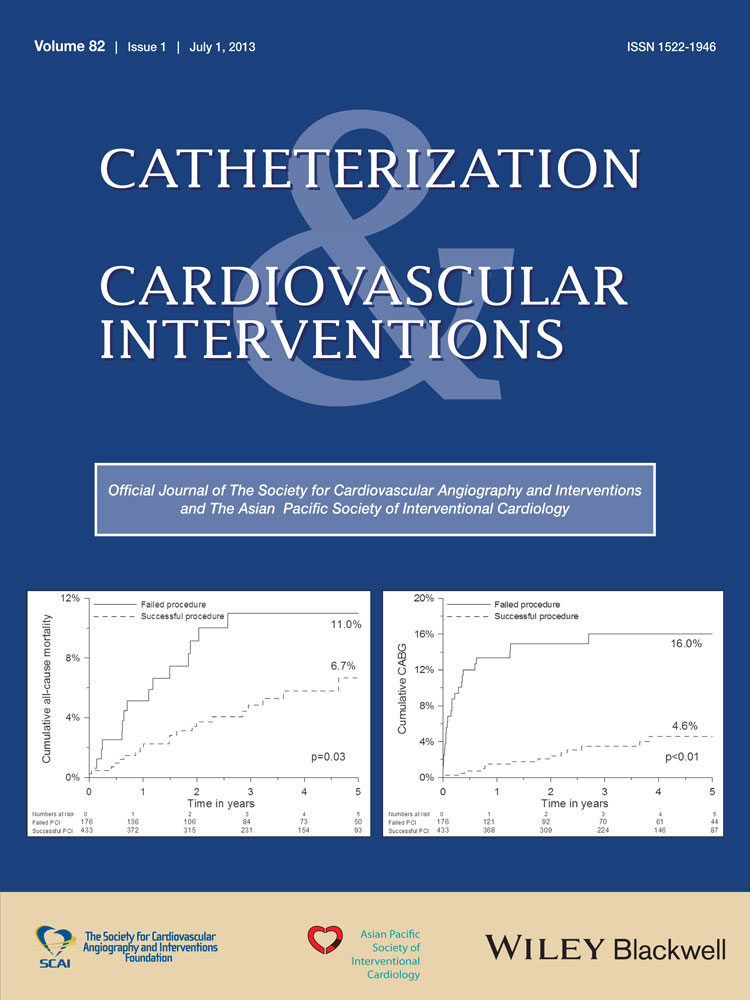Development of a high-volume, multiple-operator program for percutaneous chronic total coronary occlusion revascularization: procedural, clinical, and cost-utilization outcomes
Abstract
Background
Development of a specialized chronic total coronary occlusion (CTO) revascularization program attentive to procedural guidelines, quality oversight, and cost/resource utilization has not been described.
Methods
A single-center CTO interventional program was initiated with requirements including: extensive didactic training, on-site proctorship, routine determination of case appropriateness, adherence to procedural safety guidelines, and a 2-operator/case approach. Clinical and angiographic characteristics, procedural outcomes, in-hospital clinical events, and cost/resource utilization were examined.
Results
Among 145 patients, 160 consecutive CTO revascularization procedures were attempted between October 2009 and December 2010. Selected procedural and technical characteristics included: bilateral femoral access, 90.0%; planned retrograde guidewire placement, 37.5%; re-entry catheter, 10.0%; reattempt, 10.6%; fluoroscopic time, 67.4 ± 45.5 min; contrast volume, 403 ± 215 mL. Average stent number and total stent length per CTO vessel were 2.6 ± 1.1 and 64.7 ± 30.7 mm, respectively. Overall CTO success rate was 85.6% (137/160). In-hospital adverse outcomes included: death 0.6%; emergency bypass surgery, 0.6%; tamponade, 0.6%; myocardial infarction, 1.9%; transient nephropathy, 1.2%. Compared with patients undergoing non-CTO PCI, procedural and total cost per patient were significantly higher among the CTO cohort despite overall similar contribution margins ($5,173 ± 12,052 versus $5,730 ± 8,958, P = 0.58).
Conclusions
Following initiation of a dedicated program with implementation of quality and performance guidelines, complex CTO revascularization may be safely performed with outcomes comparable with reports from established centers. Despite higher resource utilization, CTO revascularization is associated with a positive contribution margin. Requirement of educational and performance standards, mentorship from experts, consensus review for appropriateness and provision of catheterization laboratory policies may represent a model for program development. © 2013 Wiley Periodicals, Inc.




